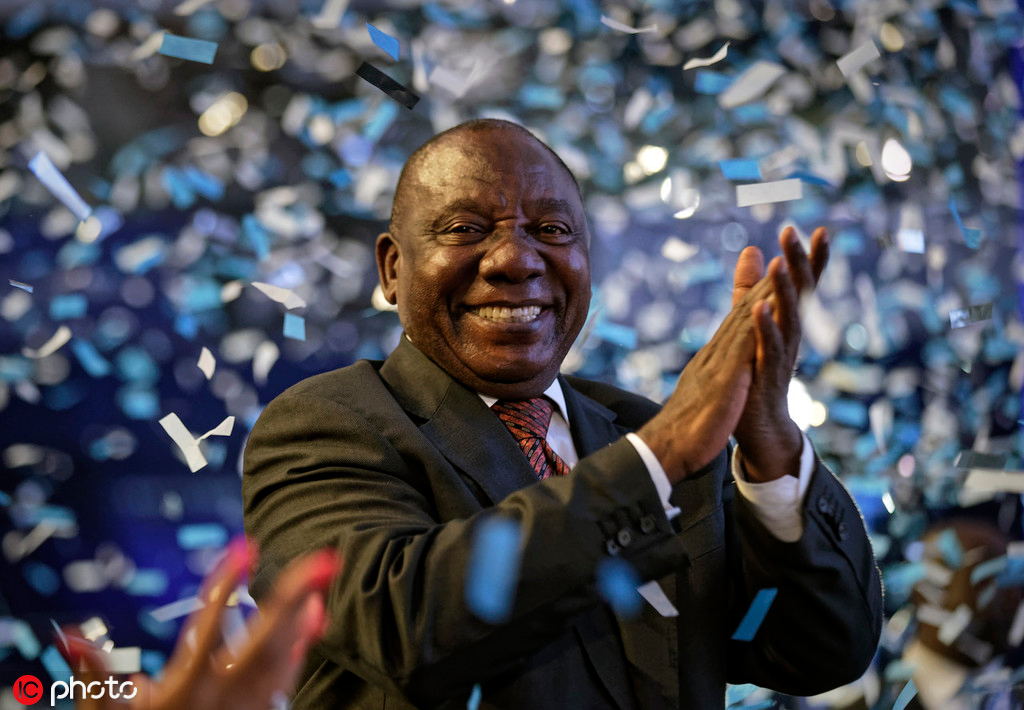South Africa's ANC wins national election
By Edith Mutethya in Nairobi, Kenya | China Daily Global | Updated: 2019-05-13 09:40

Economic recovery will be one of the biggest tasks for Ramaphosa, expert says
The victory of South Africa's ruling African National Congress on Saturday marked its weakest showing in national elections in a quarter-century. Nonetheless, incumbent President Cyril Ramaphosa declared that the vote had given him and his party "a firm mandate to build a better South Africa for all".
In his victory speech, Ramaphosa said the election confirmed that freedom reigns in South Africa.
Yet the 57.5 percent share of votes garnered by the African National Congress, or ANC, was the worst ever for the party that has ruled South Africa since the end of apartheid 25 years ago. In the previous national polls, the party had never won less than 60 percent.
Macharia Gaitho, a political analyst based in Nairobi, Kenya, said it was not surprise that the ANC would pull reduced support based on the ongoing economic challenges.
Gaitho said ANC has found itself in the middle of conservatives, who want to retain the status quo, and the radical Economic Freedom Fighters, or EFF, party of Julius Malema, which is pushing for change based on black empowerment. The EFF only won 10.79 percent of the vote, but that was four percent more than its showing in 2014 elections.
"The ANC is suffering from arrogance of power. They take popularity for granted. Additionally, people tend to get tired of having institutional governance in power for too long. That's the reason behind the reducing voter numbers. This is in addition to addressing corruption and land distribution issues," Gaitho said.
Cavince Otieno, another Kenyan-based political analyst, said the reduced ANC showing is attributable to years of institutionalization of corruption and other malpractices that has plagued the ruling party.
He said many South Africans are increasingly disillusioned as a result of poor performance of the economy and inability of the ANC-led government to bring meaningful change.
Additionally, internal divisions within the party, including during the elections period also painted a picture that the party was not serving the best interest of people.
Otieno said economic recovery will be one of the biggest tasks for Ramaphosa in his second term of five years.
"With unemployment hitting 27 percent and nearly half of the youth out of work, economic transformation in a way that can work for the people," he said.
According to World Atlas, despite South Africa's high level of national income, the wealth gap is staggering. It is the leading country for unequal distribution of income, with a Gini Index of 63.4.
Otieno also said the government must assert itself in the fight against corruption as well as safeguard public resources for public good. The national unity should also be a central project of the government.
According to Otieno, despite its degeneration, the ANC still commands political levers in South Africa.
"The other parties are yet to gain enough traction to take power. Secondly, on a personal account, Ramaphosa is viewed by a good number of South Africans to be the best bet in the fight against corruption in the country," Otieno said.
























